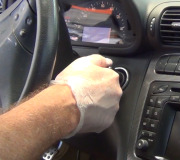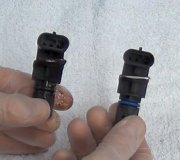Don't waste your time removing those parts to have them tested off the engine. Test benches for generators rarely have anything larger than a one horsepower motor to run them. It can easily take over five horsepower to run a generator. All the test bench can do is tell you if the generator is doing something. There's a real lot more to a professional load test.
Same with the starter. Almost any old junk starter will spin when it doesn't have to crank the engine. By testing it off the engine, you did not include the battery or the cables in the tests. Those cause a real lot more trouble than the starter itself.
Also be aware when a seller says, "all it needs is, ... ", You can be sure it doesn't. If it was that simple, they would have done it so they could sell the vehicle for more money, or they're selling it because nothing they did solved the problem. The only way a generator can cause a starting problem is if it isn't charging the battery. Other than that, the generator has nothing to do with the starter system. The clue would be you'd have real slow cranking, and charging the battery at a slow rate for an hour or two with a portable charger would get the engine started.
There's three totally different types of "click noises" associated with the starter system. The most common is a constant repeating loud buzzing noise, similar to a machine gun sound. That is almost always due to a run-down battery. The second is a real light single click each time you turn the ignition switch to "crank". That is the starter relay. Those can be hard to hear, and on many cars there are other relays turning on and off at the same time. Also, a lot of import cars don't even have starter relays. They let the sad ignition switch handle that high current. The third type of click is a single, rather loud clunk each time you turn the ignition switch to "crank". That is the starter solenoid engaging. When it does, it also turns on the really high-current starter circuit, and that is where most problems originate. Some starters are prone to developing problems in that solenoid, but that is not common with yours. The better suspect is a bad connection on one of the cables. Often the strands of wire corrode under the insulation where it can't be seen. Voltage tests will identify if that is the cause of the loud single clunk with no crank.
Wednesday, August 9th, 2017 AT 5:26 AM



